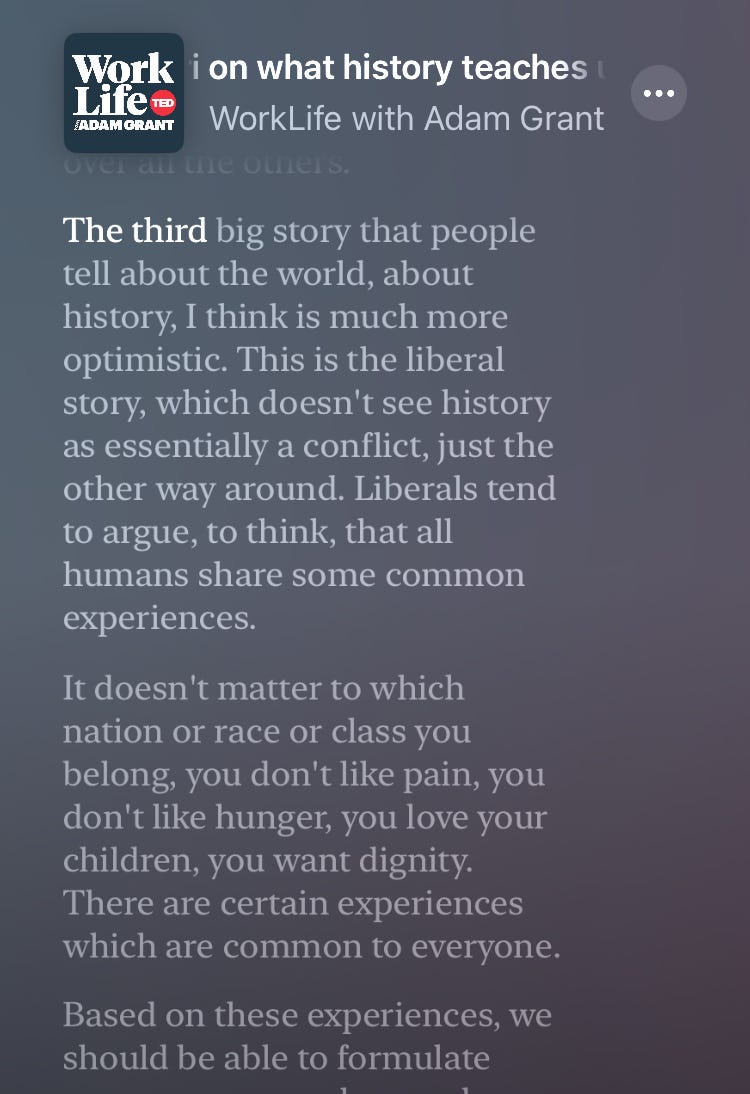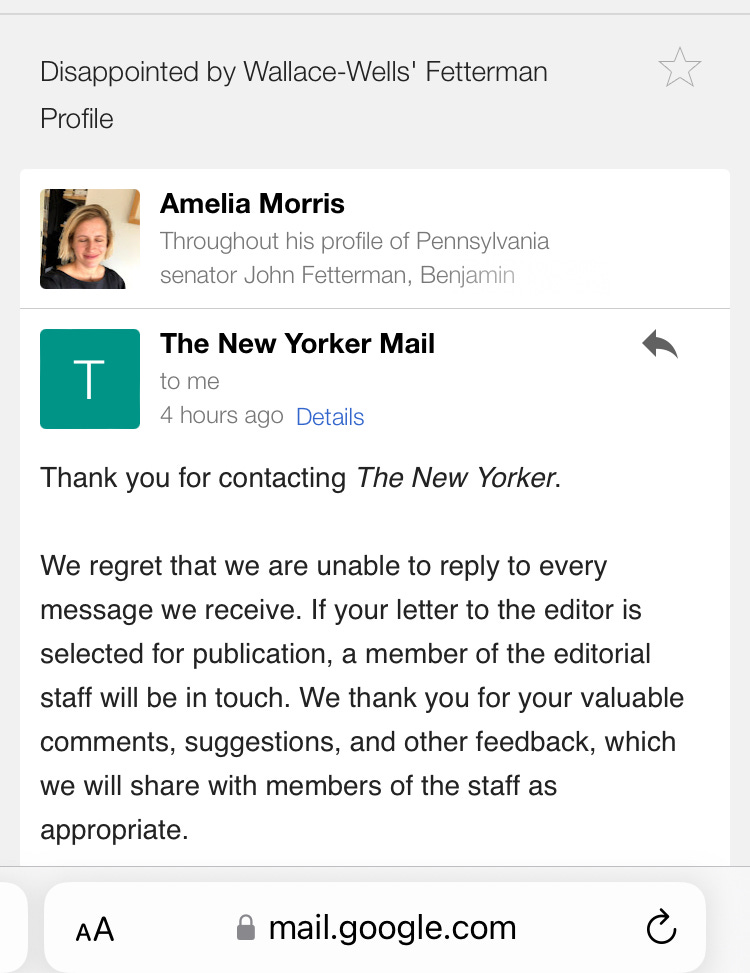Over vacation, I read Salman Rushdie’s Knife: Meditations After an Attempted Murder, and while I could write extensively about this book, the bit I keep thinking about is a tiny anecdote Rushdie relays about Philip Roth—how Roth realized he was done writing, retiring, I guess; he placed a Post-it note on his computer that said "the struggle with writing is over." Roth was eighty years old when he did this and so, it makes a lot of sense (even if it’s still surprising on some level).
But lately, I keep thinking the opposite, i.e., the struggle with writing is ON, is intense, is overwhelming because I have so much to saaayyyy!! (Best case scenario, I make it to eighty and feel like Roth, at peace, ready to chill, or in the words of the late great Dolores O’Riordan: [like] there’s no need to argue anymoooorrre.)
Let’s go through them—my struggles. Foremost, there’s my rewrite of the novel I “finished” last July. By the way, I like this version of the book so much more than the one I thought was done a year ago. I could write about this, too. How when you’re forced to remake something, you make decisions you obviously didn’t and probably couldn’t the first time around. It’s fascinating to me.

But back to the point, which is that the novel rewrite has been my first priority. I really wanted to have a draft that I could print out for Matt to read by the end of this month, since that’s when our kids were leaving for sleepaway camp, and I knew he’d have much more time than usual. The good news is that I did it. Check. The other (sidebar) good news is that both our kids are away at sleepaway camp!
This is both of their first times away and therefore, the first time in over a decade that Matt and I have been able to move seamlessly from one task to the next, to work without stopping everything for the late afternoon pick-up, to work after the afternoon pick-up without the ticking clock of a child about to become very, intolerably hungry. It’s remarkable, extraordinary, almost boring! (Not quite though because our dog, Stanley, got at least one foxtail embedded in his paw, it migrated, got infected; he ate a lot of gauze, and ended up at the vet hospital—for the infection, not the gauze, which he did pass.)
But apart from the novel, I have secondary, tertiary, and quaternary (I just looked that up) struggles with writing.
I’ve started and stopped (because I needed to finish my novel first) writing an essay titled, “What is Progress?” about how I feel like I’ve made so much progress since the last election cycle, when I was leveraging everything I had to get my Republican mother who lives in Pennsylvania to promise me that she would vote for Biden (long story), and now, four years later, I can call her up and listen as she tells me how Trump’s hush-money trial was totally rigged, and instead of feeling my heartbeat reverberate in my ears I’m like, “Hmm, I mean I strongly disagree, but interesting take.” (Because when my unprocessed emotions aren’t overriding my entire system it actually is interesting to hear my mom’s point of view, so drastically different from my own.)
But really the essay is probably more about this:

Let me repeat what Harari is saying here:
Liberals tend to argue, to think, that all humans share some common experiences. It doesn’t matter to which nation or race or class you belong, you don’t like pain, you don’t like hunger, you love your children, you want dignity. There are certain experiences which are common to everyone.
This is not the vibe I get from many of my progressive friends, which is almost exclusively identity-based, e.g. “You can’t talk about that because you’re x, y, and z.” Or worse (and paradoxically): “You’re actually not a great representative of x, so your point of view doesn’t count.”
The Portlandia sketch I reference at the beginning of this post is referenced in jest. And yet, like all comedy, it’s funny because it’s not that far off from reality. We all kind of know this person. These people. Moral vigilantes, you could call them.

I’m worried of course that the essay I haven’t had time to write is really about how I wouldn’t call myself a “progressive” anymore and how that’s uncomfortable for me for many reasons not least of which is because I’m living on the east side of Los Angeles where a specific brand of progressivism is regularly touted on ball caps and tote bags, and it’s rough on my eyes to have to roll them so hard and so deeply into the back of my head so often. (At a little league game this spring, as I spoke with a fellow parent, his baseball hat repeatedly and ongoingly told me: You’re on Native Land!) (Walking my dog, I regularly pass a guy with an ACAB hat.) To each his own, for sure, but also: I have thoughts about this… feelings that I’d love to work out… Can we talk about some of this?
In my experience, with nearly every hot button issue, the answer is mostly: No.
I was at the gym the other day and that Fiona Apple song came on in my airpods, the one with the refrain, “Kick me under the table all you want, I won’t shut up,” and I thought about Matt asking me not to bring up Israel/Palestine as we were walking into a restaurant to meet some friends for dinner.
I don’t like speaking in generalities, but in the interest of time: When did progressives become so illiberal? So seemingly against what I value as a left-of-center, liberal person. Or, have I just aged out of that kind of certainty?
Moving right along: I don’t know if this is enough for an essay, but I want to write about Leslie Jamison’s Splinters, and how much I liked it after not being entirely won over by the excerpt published in The New Yorker. Maybe I do have enough for an essay though because I’m really having a lot of problems with The New Yorker these days. See below for screenshot evidence of my complaint letter to them.
But back to Jamison! What happened was I quoted her excerpt (which at the time I thought was a standalone essay) in my own essay—“I Speak for the Housewives”—as a way of showing very fine writing done on motherhood, but writing that didn’t give me what I wanted on the topic. Here’s what I wrote:
But what I’m realizing, maybe only now—ten years into being a mother—is that what I really want from writing on motherhood is for someone to tell me or show me that motherhood, all on its own, is fascinating.
The thing is, Jamison does get there in the book version. I’d say the first half of the book (from which The New Yorker excerpted) she’s fighting the surrender. She will Do. It. All. Motherhood will not change her! But then the second half, she settles in, or perhaps, is broken down. She tells us about all the specific, particular fascinating and fascinatingly boring things her daughter does and says. I loved it. The section that covers her quarantining alone with her toddler in lockdown especially thrummed for me:
I felt like I was going feral, spending this long away from other adults, holding open my palm to receive the wooden lemon my daughter had cooked in her tiny frying pan, its two halves stuck together with Velcro; then watching her take care of our last remaining tube of Clorox wipes as if it were her child—fastening a bib around its neck, tucking it under my palm-frond duvet. “Can you make him some rainbow tea?” I’d ask her, when the Clorox tube woke from its nap, giving her a project just to buy me five more minutes to return work emails.
(By the way, I have my friend Kara to thank for the reason I picked up Splinters in the first place—she wrote about it first on her excellent Substack.)
I have notes for another essay about the definition of epistemology, which is: “the investigation of what distinguishes justified belief from opinion.” Because wouldn’t that be nice? If we could tell the difference?
I want to write some more about my muse, Nadal.
I want to write about how keeping a dream journal is going. (Really well!)
Which is all to say, I’ve had this Substack for a year. And I guess I’ll keep going? If you want to re-up your subscription, that would be very encouraging.
All best,
Amelia xoxx






You know one of the things I love about you/your days? Your commitment to your writing life and mind. Every day of my life I basically have to rediscover / question why I write. It’s…not fun!! And yet you wake in the hide with relish, even when it’s a struggle. It’s so refreshing. ALSO: progress is, yes, so internal (and then sometimes blissfully, gracefully, or hard won external). The thought of you listening to your mother go on for minutes at a time about Trump, wow. Check this girl’s blood pressure and levels, she’s reached super human mode. So many other things but this is a perfect paragraph for me: “I was at the gym the other day and that Fiona Apple song came on in my airpods, the one with the refrain, “Kick me under the table all you want, I won’t shut up,” and I thought about Matt asking me not to bring up Israel/Palestine as we were walking into a restaurant to meet some friends for dinner.” Finally, is there anything more intriguing than a rubber glove on those married people’s bureau?!? 🐶 🧤 💉 🍑 even though I know the mss is the point, lol
Hi again, Amelia. I commented on your latest post last night when it was past my bedtime (Lebanon time) and my head wasn't clear but my thoughts wouldn't settle. I think I've had a similar loss of ideology, though perhaps in the opposite direction to you. I might be a person who took great offense at the op-ed you thought was innocuous. Or maybe not...who knows?? If so, I'm waving at you from across the political (?) divide, hoping that we all somehow make it to a kinder, softer world. I appreciate your writing so very much and so relate to the sentiments shared.